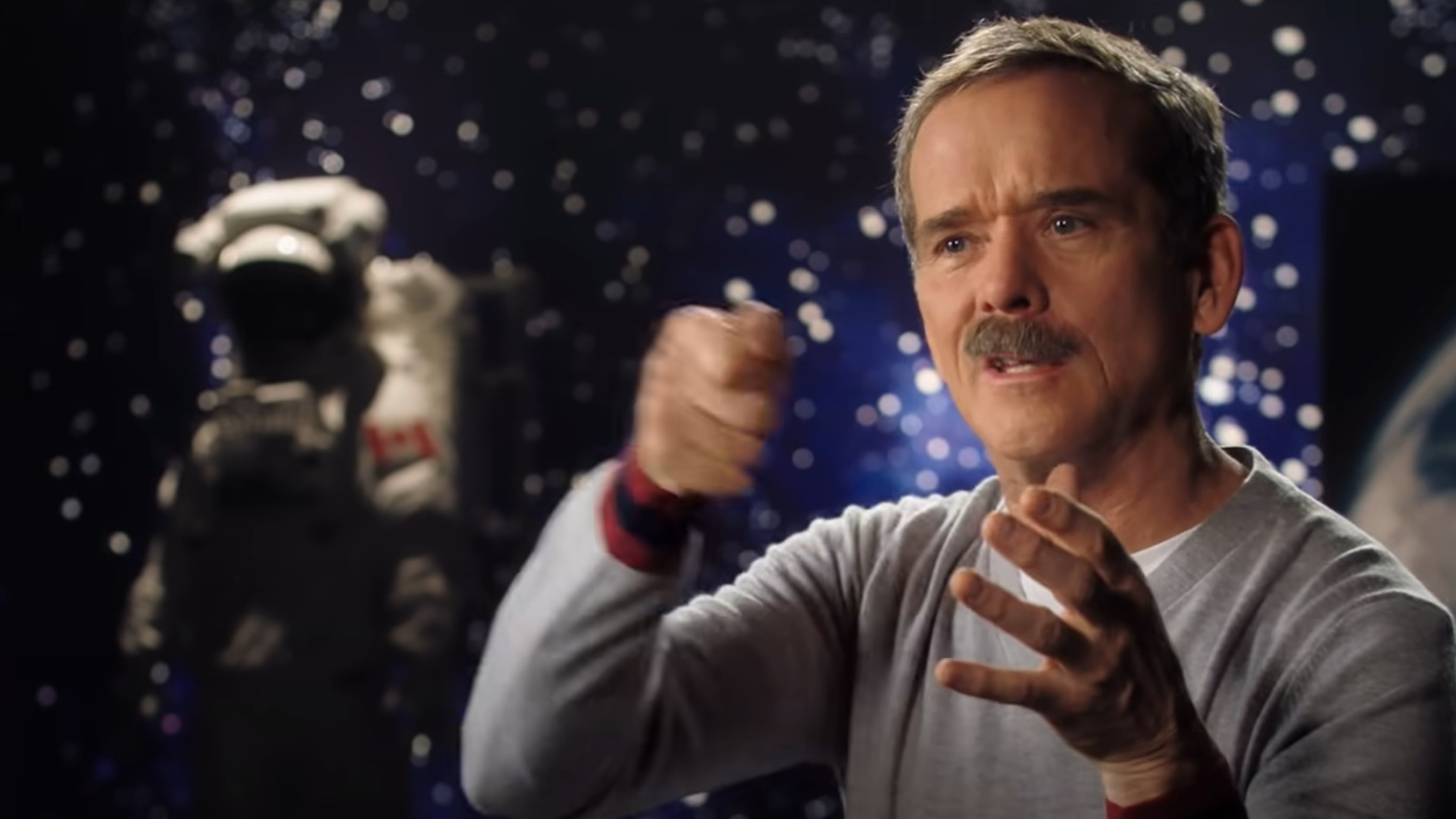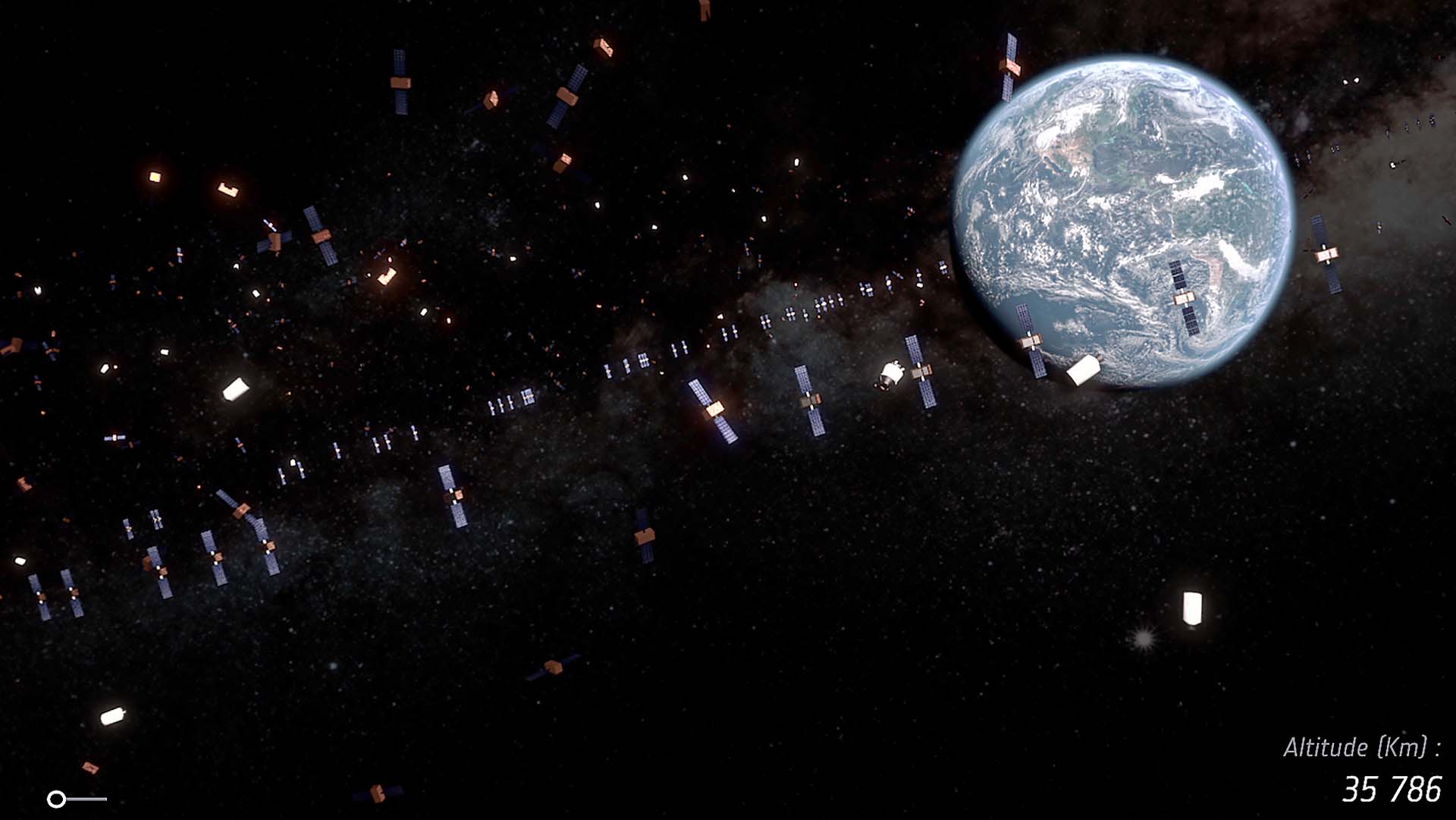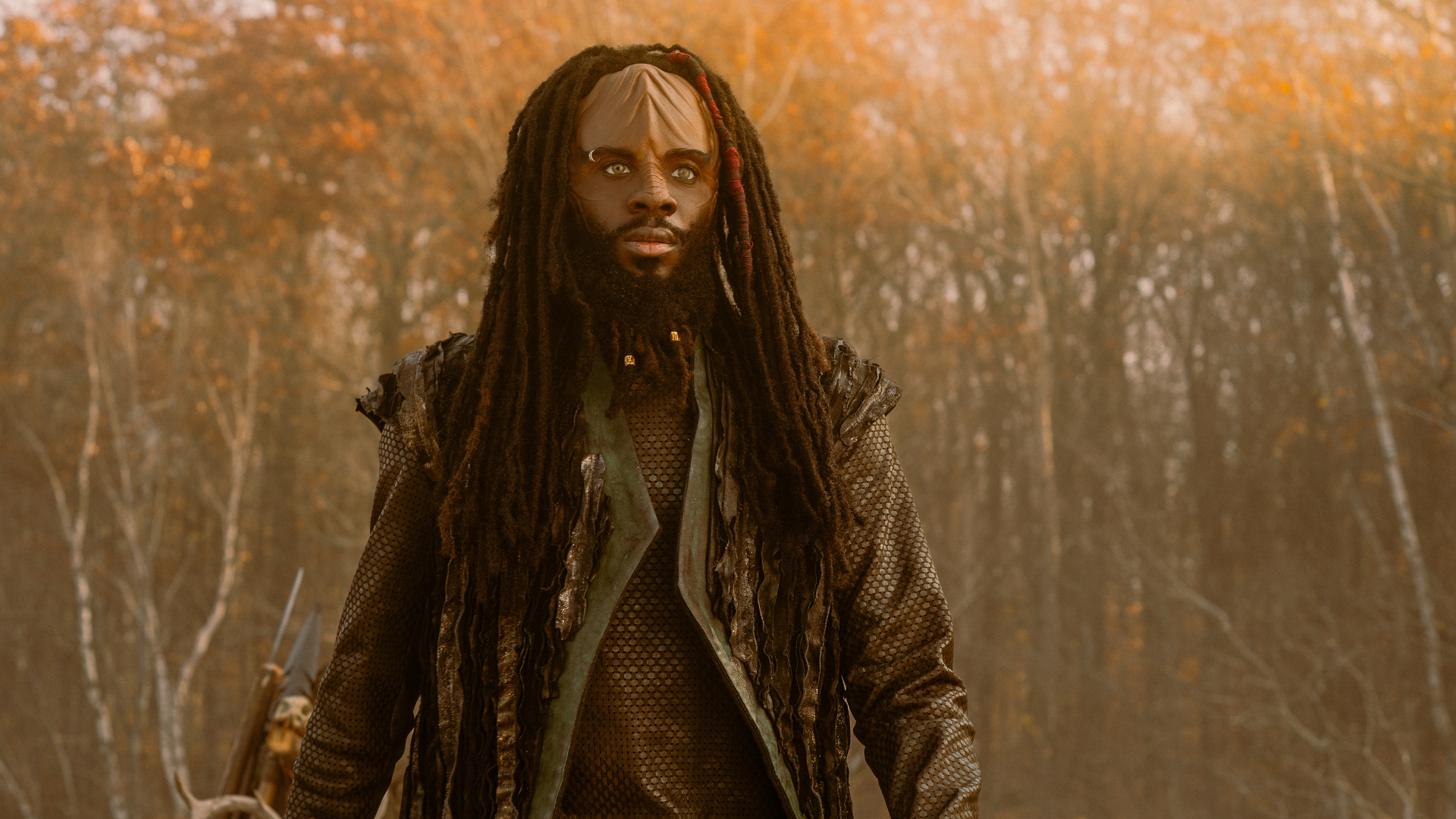Astronaut Chris Hadfield wants to protect the moon with an 'Astra Carta'
Hadfield is working with King Charles III on the initiative, which will be released on June 28.

Canadian astronaut Chris Hadfield is designing a new "Astra Carta" with British royalty to protect the moon, according to media reports.
Chris Hadfield has partnered with King Charles III on a space sustainability plan that will be released on June 28 in London, according to the Canadian Press. (It's called the Astra Carta in a nod to the Magna Carta, the famous English legislation from 1215 underpinning world democracies.)
The new moon plan would answer several crucial questions, Hadfield said in the report, including "What would we do with it? Who would own it? Whose laws? Who can drill and who can take advantage of the short-term and long-term resources that exist there?"
The proposal has special relevance in Canada given that Canadian Space Agency (CSA) astronaut Jeremy Hansen will fly around the moon, along with the rest of the Artemis 2 crew, in November 2024 or so. The CSA (through the company MDA) also will supply the robotic Canadarm3 for NASA's planned Gateway space station orbiting the moon.
Hadfield received his country's top honor, the Order of Canada, following his third and final mission to space in 2012-2013. He commanded the International Space Station and captured the world's attention on early social media, including playing a version of David Bowie's famous "Space Oddity" in orbit.
Related: Kessler Syndrome and the space debris problem
The retired astronaut, doing a brief interview on the sidelines of a conference in Toronto, did not elaborate on how the Astra Carta would meld with existing space treaties by the United Nations (UN) Committee on the Peaceful Uses of Outer Space.
Breaking space news, the latest updates on rocket launches, skywatching events and more!
For example, the UN's Outer Space Treaty of 1967 concerns signatory nations' overall space behavior, while the 1978 Moon Treaty discusses appropriate ways to explore the moon peacefully.
Hadfield has been working with Charles III on the space sustainability plan since last summer, the report said. Hadfield and His Majesty's first public meeting on the matter was in February 2023, about five months after Charles III became king following the death of his mother, Elizabeth II. (Incidentally, moon astronaut Hansen also carried the flag of Canada during Charles III's coronation May 6.)
When not occupied with royal affairs, Charles III is known for his environmental concerns and charity support. And one environmental concern has become more and more of an issue in the space community lately — the increasing number of satellite launches.
Increased space activity, though valuable economically, creates problems such as carbon dioxide emissions, congestion in space that increases the risk of satellite collisions and satellite streaks marring telescope images.
Related: Starlink satellites: Everything you need to know about the controversial internet megaconstellation
The Canadian Press report did not elaborate on why June 28 is the selected release date for Astra Carta. The 808th anniversary of Magna Carta's first iteration is two weeks earlier, on June 15.
The Magna Carta was issued by King John of England in 1215 in response to "specific grievances" about his rule by local nobles, according to the British Library. But John likely sent an envoy to Pope Innocent III in Rome around the same time, asking to annul the legislation. News of the successful annulment reached the king just two months later, a remarkably quick turnaround given the distances involved.
That said, Henry III reissued Magna Carta in 1217 amid a civil war, and the final version was released in 1225. It was only in later centuries that the Magna Carta's democratic principles — such as the right to a fair trial — were cited as fundamental to human rights. Examples include the United States Bill of Rights (1791), the Universal Declaration of Human Rights (1948) and the European Convention on Human Rights (1950).
Canada, a former colony of the United Kingdom, has a similar parliamentary government system as its one-time parent, along with numerous other ties. Though Canada now has its own constitution and independence, the effects of colonialism persist. A principal issue is the maltreatment, death and land loss of Indigenous peoples, which the government-supported Truth and Reconciliation Commission of Canada highlighted in 2015.
Canada is moving forward with steps seeking "reconciliation" with Indigenous peoples, although not all groups agree with the approach. That said, Charles III has met with a few Indigenous peoples of Canada. The current king's representative in Canada is also the first Indigenous governor general; Her Excellency Mary Simon has an Inuk mother and comes from Kangiqsualujjuaq in the far north of Quebec.

Elizabeth Howell (she/her), Ph.D., was a staff writer in the spaceflight channel between 2022 and 2024 specializing in Canadian space news. She was contributing writer for Space.com for 10 years from 2012 to 2024. Elizabeth's reporting includes multiple exclusives with the White House, leading world coverage about a lost-and-found space tomato on the International Space Station, witnessing five human spaceflight launches on two continents, flying parabolic, working inside a spacesuit, and participating in a simulated Mars mission. Her latest book, "Why Am I Taller?" (ECW Press, 2022) is co-written with astronaut Dave Williams.

